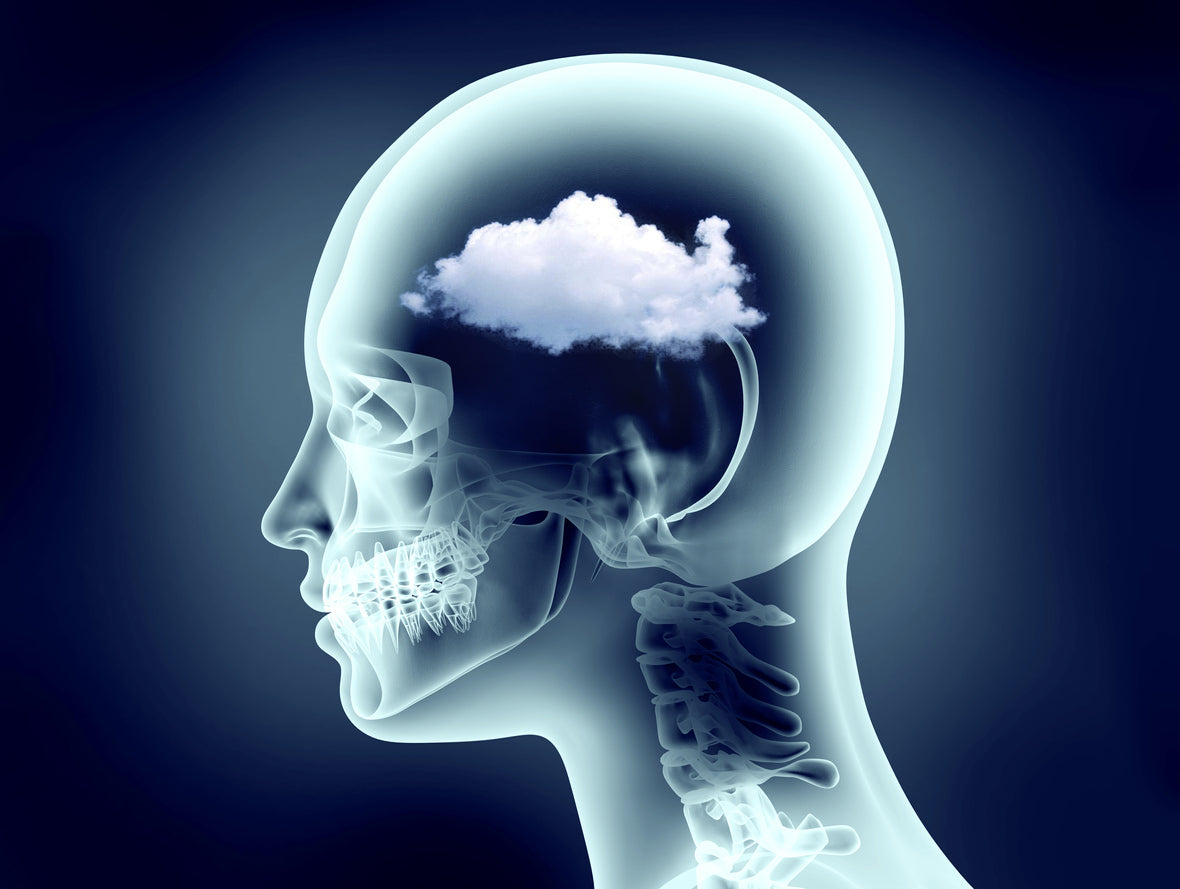ADDRESSING BRAIN FOG
Brain fog is one or more symptoms that affect your ability to concentrate, focus or think. To many people, it may feel like you are sleepwalking. People often report feeling hazy, tired or just not able to comprehend information.
There may be a number of medical conditions causing brain fog. Some of these may be serious and require medical attention. Other reasons may be side effects from medication, poor sleep habits or poor diet. Fixing brain fog means addressing some of these issues first, but thankfully there are other tools you can use.
Simply using caffeinated beverages is not recommended. This also sets up the possibility of depending on caffeine during the day, and using sleep aides (alcohol, THC or medicine) to cover up the caffeine effects at night.

How to fix Brain Fog with Tea
Drinking tea is a good way to nourish your brain, as the delicious beverage offers a number of benefits to this important organ. Tea can:
Stimulate your mind
Improve your focus
Give your brain an energy boost
Induce calm and relaxation
When you drink tea, you ingest some caffeine. This stimulant gets your nervous system firing, and it stimulates your brain along with your body. Caffeine alone would only stimulate your mind, but tea also contains an amino acid called L-theanine.
L-theanine is actually a relaxant that balances the stimulating effects of caffeine. Best of all, L-theanine can be absorbed into the brain via the intestines, as it can cross the blood-brain barrier - which many nutrients cannot. When it enters the brain, cells called astrocytes consume the L-theanine, and turn it into a chemical - GABA. GABA is a chemical that is needed by the brain to relax. There's just enough L-theanine to help relax the mind, while the caffeine in the tea also helps to kick your brain into high gear.
Why is this desirable? Unlike high caffeine beverages, the tea prevents the caffeine crash afterwards. And because the caffeine levels are moderate, you can keep drinking tea to keep your mind focused. The FDA doesn't recommend more than 400mg of caffeine per day.
However, you still should avoid caffeine later in the day, as that may impact your rest. Luckily, there are more tea tools available in the form of various herbs that can benefit brain function.
Green, Purple & White tea for Brain Fog

These teas contain very high EGCG levels as well as other catechins and polyphenols. Research has indicated that it may play a role in improving neurological cell function and potentially preventing degenerative brain diseases. Teas with high levels of EGCG include green, white and purple teas.
Ginger Root For Brain Fog
Ginger has been used in Asian cultures as a medicine for thousands of years, and with good reason. Modern science is beginning to accept this spice as offering some medicinal properties. Common uses of ginger relate to increasing blood flow and fighting infections. However, the newest studies that are being done add to this informational base; Ginger may improve brain function and fight Alzheimer’s disease. In recent studies, ginger has shown that it may increase the reaction time and working memory in its participants.
Turmeric For Brain Fog
Much like ginger, turmeric has been consumed and used medically in other nations for great stretches of time. And, like with ginger, turmeric is beginning to garner a reputation as having medicinal properties. While the physical health benefits are prevalent, what is little known is that the newest studies related to this spice shows that turmeric increases brain function by telling the brain to produce more BDNF (Brain Derived Neurotropic Factor), which is a hormone that tells the brain to function at higher levels.
Fix Brain Fog with Moringa Tea
Moringa leaves are particularly nutrient-dense, containing high levels of vitamins, minerals, and antioxidants. Some studies suggest that certain compounds found in moringa, such as polyphenols and flavonoids, have neuroprotective effects. They may help protect against neurotoxicity and promote the growth and survival of brain cells. These effects could potentially contribute to improved cognitive function and overall brain health.
There are many beneficial teas that can be used to fix brain fog, but we've listed some specific recommendations below:

